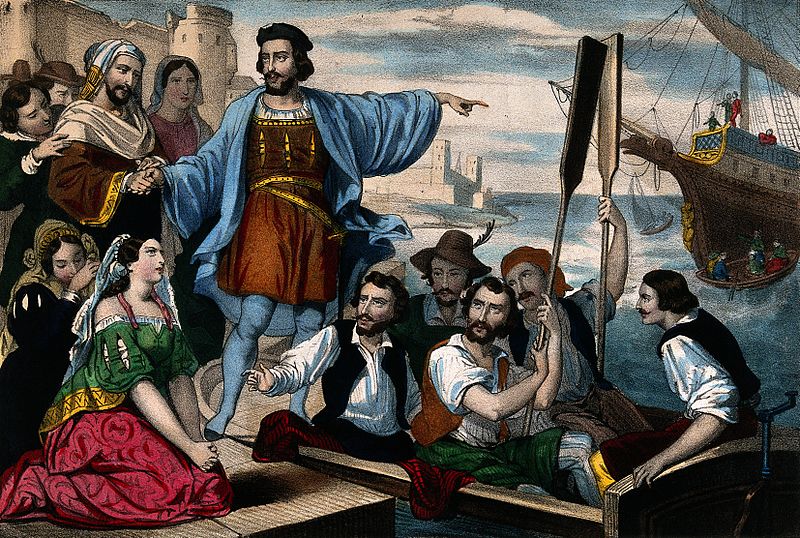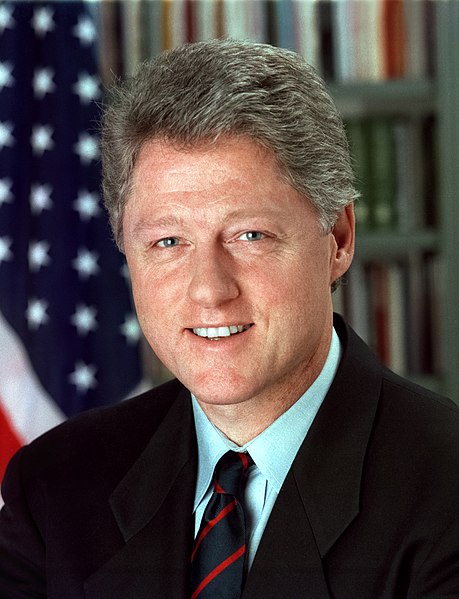January 14th stands out as a day of significant historical events that have shaped cultures, politics, and societies around the globe.
From medieval battles that determined the fates of empires to groundbreaking achievements in space exploration, this date marks moments of triumph, tragedy, and transformation.
In this article, we embark on a chronological journey, exploring a selection of remarkable events that occurred on January 14th.
These snapshots in time provide a fascinating glimpse into the human experience, showcasing the diversity of our collective past and its impact on our present and future. Join us as we traverse centuries and continents, uncovering the stories and legacies that define January 14th in history.
January 14th Events in History
1129: Formal approval is given to the Order of the Templar at the Council of Troyes
The Order of the Templars, also known as the Knights Templar, received formal ecclesiastical recognition by the Catholic Church at the Council of Troyes. This event was pivotal in the history of the Templars, as it legitimized their status and enabled their rapid growth and influence.
Also Read: January 13 – On this Day in History
The council was convened at the request of Bernard of Clairvaux, who supported the Templars and helped in drafting the Latin Rule, which outlined the ideals and duties of the order.
The Knights Templar became a key military and financial force during the Crusades, tasked with protecting Christian pilgrims traveling to the Holy Land.
1301: Andrew III of Hungary dies, ending the Árpád dynasty in Hungary
Andrew III, known as Andrew the Venetian, was the last king of Hungary from the Árpád dynasty, which had ruled the Kingdom of Hungary since the late 9th century. His death marked the end of the dynasty’s 400-year reign, leading to a period of interregnum and instability in Hungary.
Also Read: January 15th Events in History
Following his death, the kingdom entered a phase of political chaos, as various factions competed for the throne. This eventually led to the ascendancy of foreign rulers and the integration of Hungary into the domains of European powers like the House of Anjou.
1539: Spain annexes Cuba
In 1539, Spain officially annexed Cuba, integrating the island into the Spanish Empire. This event was part of the larger Spanish colonization of the Americas, which began after Christopher Columbus’s voyages that were sponsored by the Spanish Crown.
Cuba became a crucial part of Spain’s New World territories, serving as a strategic base for exploration, conquest, and trade within the Caribbean and beyond.
The Spanish colonization had profound impacts on the indigenous population, culture, and economy of Cuba, introducing European administrative systems, Catholicism, and forced labor systems, including the encomienda and later the transatlantic slave trade.

1641: United East Indian Company conquers the city of Malacca, the first time in history
The conquest of Malacca by the Dutch East India Company (VOC) marked a significant moment in colonial history. Malacca, located in present-day Malaysia, was a vital trading port that controlled the strategic Strait of Malacca, a crucial passage for trade between the Indian Ocean and the Far East.
The capture of Malacca from the Portuguese, who had controlled the city since 1511, allowed the Dutch to dominate spice trade routes and establish a monopoly over some of the most lucrative commodities of the time, such as nutmeg, cloves, and mace.
This victory was a key part of the Dutch strategy to control trade in Southeast Asia and marked a significant shift in the balance of power in the region.
1761: The Third Battle of Panipat is fought in India between the Afghans under Ahmad Shah Durrani and the Marathas
The Third Battle of Panipat took place on January 14, 1761, and was one of the largest and bloodiest fought in the 18th century. It was a decisive victory for Ahmad Shah Durrani, also known as Ahmad Shah Abdali, the founder of the Durrani Empire in Afghanistan, against the Maratha Empire.
The battle marked the peak of Afghan power in the Indian subcontinent and halted the expansion of the Maratha Empire. The devastating losses for the Marathas in terms of troops and generals significantly weakened their influence in northern India, paving the way for the rise of British power in the region.
This battle is often noted for its high casualties, brutal combat, and the significant impact it had on the political landscape of India.
1784: The United States Congress ratifies the Treaty of Paris with Great Britain to end the American Revolutionary War
The ratification of the Treaty of Paris by the United States Congress marked the official end of the American Revolutionary War. This treaty recognized the independence of the thirteen American colonies from British rule, establishing the United States as a sovereign nation.
Signed on September 3, 1783, in Paris and ratified on January 14, 1784, the treaty set the boundaries between the new United States and British North America. Additionally, it addressed issues such as fishing rights, the restoration of property and prisoners of war, and the withdrawal of British troops from American soil.
The Treaty of Paris was a significant achievement for the American diplomats involved, including Benjamin Franklin, John Adams, and John Jay, and it laid the groundwork for the future growth and development of the United States.

1900: Giuseppe Verdi’s opera ‘La Traviata’ premieres in Venice
The premiere of Giuseppe Verdi’s opera “La Traviata” in Venice on January 14, 1900, is actually a common misconception. “La Traviata” first premiered on March 6, 1853, at the La Fenice opera house in Venice. It is one of Verdi’s most enduring works, telling the story of Violetta Valéry, a Parisian courtesan who sacrifices her happiness for the man she loves.
The opera faced a mixed reception initially, partly due to casting issues and the contemporary setting, which challenged social norms. However, it soon gained popularity and has since become one of the most performed operas worldwide.
Its themes of love, sacrifice, and societal judgment, combined with Verdi’s emotive composition, have ensured its place in the operatic canon.
1952: NBC’s long-running morning news program ‘Today’ debuts, with Dave Garroway as the host
The debut of NBC’s “Today” show on January 14, 1952, marked the beginning of a new era in television broadcasting.
Created by Sylvester “Pat” Weaver, the show was the first of its kind to blend early-morning entertainment with news, featuring interviews, lifestyle segments, and weather updates.
Dave Garroway, the original host, became known for his calm and friendly demeanor, setting the tone for the program’s success.
The innovative format of “Today” transformed morning television, establishing a template that would be emulated by morning shows across the United States and around the world. Its pioneering approach to broadcasting helped to make NBC a major player in television news and morning programming.
1953: Josip Broz Tito is inaugurated as the first President of Yugoslavia
Josip Broz Tito’s inauguration as the first President of Yugoslavia in 1953 was a significant moment in the country’s history, solidifying his leadership and the direction of the Yugoslav state. Having been a key figure in the resistance against Nazi occupation during World War II, Tito emerged as a powerful political leader.
Under his presidency, Yugoslavia was established as a socialist federation, maintaining a neutral stance during the Cold War and refusing to align closely with either the Soviet Union or the West.
Tito’s leadership was marked by a unique brand of socialism, which allowed for some degree of economic decentralization and openness to foreign investment, distinguishing Yugoslavia from other Eastern Bloc countries.
His presidency until his death in 1980 was characterized by an emphasis on “Brotherhood and Unity” among the diverse ethnic groups within Yugoslavia, striving for peace and stability in a region historically fraught with tensions.
1969: An explosion aboard the USS Enterprise near Hawaii kills 27 people
The explosion on the USS Enterprise on January 14, 1969, was one of the deadliest accidents in the history of the United States Navy. The aircraft carrier was stationed near Hawaii when a series of blasts occurred, initiated by the accidental detonation of a rocket mounted on a fighter jet parked on the ship’s flight deck.
The explosions and subsequent fires caused the deaths of 27 crew members and injured more than 300 others. The incident led to significant damage to the ship and its aircraft. The tragedy highlighted the dangers of naval operations and led to improved safety protocols and procedures within the Navy to prevent similar accidents in the future.
The USS Enterprise, a pioneering nuclear-powered aircraft carrier, played a significant role in naval history, and the events of that day are remembered as a solemn reminder of the risks faced by military personnel.

1973: Elvis Presley’s concert ‘Aloha from Hawaii’ is broadcast live via satellite, and sets the record as the most watched broadcast by an individual entertainer in television history
Elvis Presley’s “Aloha from Hawaii” concert was a groundbreaking event, broadcast live via satellite on January 14, 1973. This concert was a significant achievement in the history of entertainment, showcasing the power of live satellite broadcasting to reach a global audience.
It was watched by an estimated 1.5 billion people across 40 countries, setting a record for the most-watched broadcast by an individual entertainer at the time.
The concert featured Elvis performing some of his most famous songs, and its success further cemented his status as a cultural icon. The event also raised $75,000 for the Kui Lee Cancer Fund in Hawaii, demonstrating the potential for using global entertainment platforms for charitable causes.
1989: US President Ronald Reagan awards the Presidential Citizens Medal to Armando Valladares
On January 14, 1989, Ronald Reagan awarded the Presidential Citizens Medal to Armando Valladares, a Cuban dissident, poet, and human rights activist. Valladares had been imprisoned for 22 years in Cuban prisons for his opposition to the Castro regime. During his imprisonment, he was subjected to harsh conditions and became an international symbol of the struggle for human rights.
Upon his release, Valladares wrote “Against All Hope,” a memoir detailing his experiences and the abuses within Cuban prisons. The Presidential Citizens Medal, established in 1969, is awarded to individuals who have performed exemplary deeds of service for their country or their fellow citizens.
Reagan’s recognition of Valladares highlighted the United States’ stance against human rights abuses in Cuba and underscored the importance of international awareness and advocacy for human rights.
1991: The international community recognizes the independence of Estonia, Latvia, and Lithuania
In 1991, the international community formally recognized the independence of the Baltic states: Estonia, Latvia, and Lithuania. These nations had declared their independence from the Soviet Union in the wake of its weakening grip and the failed August coup in Moscow.
Their struggle for independence became a symbol of resistance against Soviet oppression and the desire for national sovereignty. The recognition by the international community was a significant moment in the post-Cold War era, marking a shift towards independence and democracy in Eastern Europe.
It also highlighted the disintegration of the Soviet Union, leading to its eventual dissolution in December 1991. The independence of the Baltic states set a precedent for other Soviet republics seeking autonomy and has since been celebrated as a triumph of the human spirit and national identity.
1994: US President Bill Clinton and Russian President Boris Yeltsin sign the Kremlin accords, which stop the preprogrammed aiming of nuclear missiles towards each country’s targets and also provide for the dismantling of the nuclear arsenal in Ukraine
The signing of the Kremlin accords on January 14, 1994, by US President Bill Clinton and Russian President Boris Yeltsin was a landmark event in post-Cold War nuclear disarmament and international relations.
These accords were part of broader efforts to reduce the nuclear threat following the end of the Cold War. They specifically aimed to eliminate the policy of targeting each nation’s cities and infrastructure as a preemptive nuclear strategy.
Additionally, the accords played a crucial role in the denuclearization of Ukraine, which inherited the world’s third-largest nuclear arsenal following the dissolution of the Soviet Union. Ukraine agreed to transfer all nuclear weapons on its territory to Russia for dismantling, in exchange for security assurances.
This agreement was significant in reducing the number of nuclear weapons and preventing the proliferation of nuclear material, contributing to global security and stability.

2000: A United Nations tribunal sentences five Bosnian Croats to up to 25 years in prison for the 1993 killing of over 100 Bosnian Muslims
On January 14, 2000, a United Nations tribunal delivered a significant judgment related to the Yugoslav Wars, sentencing five Bosnian Croat military and political leaders to prison terms of up to 25 years.
They were found guilty of participating in the massacre of over 100 Bosnian Muslim civilians in the village of Ahmići in April 1993, one of the most notorious atrocities during the Bosnian War. This act was part of a broader campaign of ethnic cleansing aimed at creating a homogeneous Croat territory.
The sentencing by the International Criminal Tribunal for the former Yugoslavia (ICTY) was a pivotal moment in international justice, demonstrating the international community’s commitment to holding individuals accountable for war crimes, crimes against humanity, and genocide.
2004: The national flag of Georgia, the so-called ‘five cross flag’, is restored to official use after a hiatus of some 500 years
On January 14, 2004, Georgia reinstated the use of its historical national flag, known as the “five cross flag.” This flag, featuring a large cross that extends to the edges of the flag and four smaller crosses in each quadrant, dates back to the medieval Kingdom of Georgia, where it was used as a symbol of the Georgian nation.
Its restoration marked a significant moment in Georgia’s post-Soviet era, symbolizing a return to national roots and historical identity following independence from the Soviet Union in 1991.
The adoption of the five cross flag was part of broader efforts by the Georgian government to reinforce national unity and pride by reviving historical and cultural symbols.
This decision was also reflective of the broader political and social changes occurring in Georgia at the time, including the Rose Revolution, which led to the resignation of Eduard Shevardnadze and the election of Mikheil Saakashvili as president.
2005: The Huygens probe lands on Saturn’s moon Titan
The Huygens probe’s landing on Saturn’s moon Titan on January 14, 2005, represented a monumental achievement in space exploration. Part of the Cassini-Huygens mission—a collaboration between NASA, the European Space Agency (ESA), and the Italian Space Agency (ASI)—Huygens made history as the first spacecraft to land on Titan.
The probe provided invaluable data on Titan’s atmosphere and surface, revealing a complex world with rivers, lakes, and seas of liquid methane and ethane, alongside landscapes shaped by both wind and possibly volcanic activity.
These findings significantly expanded our understanding of the moon, offering insights into its potential for prebiotic chemical processes and deepening our knowledge of the outer solar system.
2010: Yemen declares an open war against the terrorist group Al-Qaeda
On January 14, 2010, the Yemeni government officially declared an open war against Al-Qaeda in the Arabian Peninsula (AQAP), signaling a major escalation in its efforts to combat terrorism within its borders.
This declaration came in response to the increasing threat posed by AQAP, which had been responsible for numerous attacks in Yemen and had expressed intentions to target Western interests.
The Yemeni government’s announcement marked a significant commitment to addressing terrorism, involving increased military operations and collaboration with international partners, including the United States, to dismantle AQAP’s network.
This period highlighted the complex challenges facing Yemen, including political instability, economic difficulties, and the need for comprehensive strategies to counter terrorism while addressing underlying societal issues.
2011: Zine El Abidine Ben Ali, President of Tunisia, flees to Saudi Arabia after popular protests, known as the Jasmine Revolution
The departure of President Zine El Abidine Ben Ali from Tunisia on January 14, 2011, marked a pivotal moment in the Arab Spring, a series of anti-government protests across the Arab world. Ben Ali’s exit followed weeks of protests ignited by the self-immolation of Mohamed Bouazizi, a young street vendor protesting police harassment and economic conditions.
The Jasmine Revolution, as it came to be known, led to significant political and social changes in Tunisia, including the establishment of a democratic government and the holding of free elections. Ben Ali’s flight to Saudi Arabia ended his 23-year rule, characterized by authoritarianism, corruption, and human rights abuses.
The events in Tunisia served as a catalyst for similar movements in other Arab countries, signaling a profound shift towards calls for democracy, human rights, and economic reform.
2023: A major blackout affects Pakistan, leaving almost the entire country without electricity
The nationwide power outage in Pakistan on January 14, 2023, was one of the most extensive blackouts in the country’s history, affecting major cities, towns, and rural areas alike. This incident exposed vulnerabilities in Pakistan’s power infrastructure and raised questions about the resilience of its national grid.
The blackout had significant implications for millions of people, disrupting daily life, economic activities, and critical services, including healthcare and transportation. The causes of the blackout were attributed to technical issues within the power generation and distribution systems, highlighting the need for substantial investments in infrastructure upgrades and maintenance.
The event underscored the importance of reliable energy sources and the challenges faced by developing countries in ensuring energy security and sustainability.
